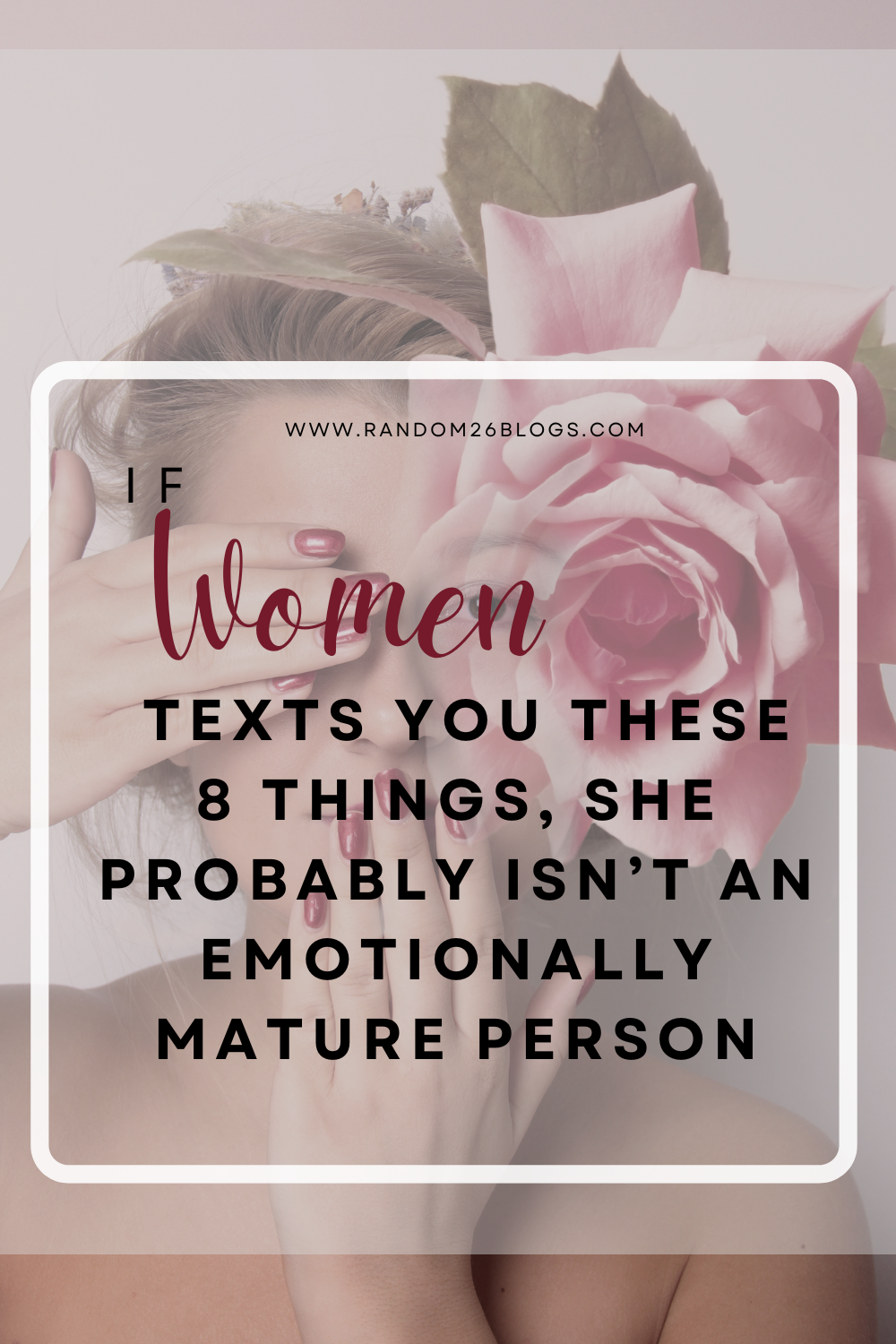
Table of Contents
Texting has become a unique window into someone’s inner world. It’s casual, sometimes even fun, but it can reveal much more about a person’s emotional depth than we realize. I remember a friend once telling me she could tell her date “wasn’t emotionally there” just from his lazy, two-word replies.
Sometimes, messages show self-awareness and openness, while other times, they hint at immaturity. If you’ve been scratching your head over certain texts, these eight types might clarify what they’re really saying—about where she stands emotionally and what it means for you.
1) “You Never…”
When a text starts with “You never…”, it often signals emotional immaturity. Instead of articulating specific concerns, this phrase sweeps in generalizations that are likely exaggerated. Emotionally mature people approach issues directly and with clarity, sharing specific grievances rather than using blanket statements.
2) “Whatever”
In my experience, “whatever” is a big red flag. If a person uses this word often in disagreements, it may mean they’re avoiding the real issue. Emotionally mature individuals prefer to address problems head-on, not brush them off. Frequent “whatever” responses could indicate a reluctance to engage deeply.
3) “I’m Fine”
The classic “I’m fine” is often a cover for unspoken emotions. While everyone uses it occasionally, those who lack emotional maturity may rely on it to avoid vulnerability. Instead of openly discussing their feelings, they keep them hidden, assuming their partner should somehow “know” what’s wrong.
4) “It’s All Your Fault”
If you’re getting texts that say “It’s all your fault” or “You always mess up,” it may suggest she’s unwilling to take responsibility. Emotionally mature relationships are built on mutual accountability, and when blame becomes one-sided, it can hurt both communication and connection.
5) “I Hate You”
While everyone has moments of frustration, expressing it as “I hate you” crosses a line. Emotional maturity means discussing hurt feelings without using damaging words. Repeatedly using hurtful phrases in texts can reveal a lack of emotional depth, making constructive conflict resolution difficult.
6) “You’re Just Like My Ex”
Comparing someone to a past partner is rarely constructive. When phrases like “You’re just like my ex” appear in texts, it’s a sign of lingering baggage and unresolved issues. Emotionally mature people understand that each relationship is unique and don’t carry comparisons from past relationships into current ones.
7) “I Can’t Live Without You”
While romantic in the movies, texts like “I can’t live without you” can hint at dependence rather than healthy attachment. Emotionally mature individuals maintain their independence and sense of self within a relationship, valuing balance over reliance.
8) “Why Don’t You Ever Understand?”
If “Why don’t you ever understand?” appears frequently, it can mean she’s avoiding her role in communication. Emotionally mature people recognize that understanding takes effort from both sides. Instead of placing blame, they engage in active listening and empathy.
Finding the Right Fit
At the end of the day, we’re all still learning and growing. Emotional maturity isn’t something we’re born with; it’s a product of small, everyday choices to improve ourselves. If you’re noticing patterns in your conversations that don’t sit right, it may be worth reflecting on whether your partner is ready to take that journey with you.
True emotional growth shows in someone’s willingness to learn and step up, especially in challenging moments. A person genuinely trying will show it—even when they slip up. And sometimes, knowing where someone stands emotionally can help you find where you truly want to be.




